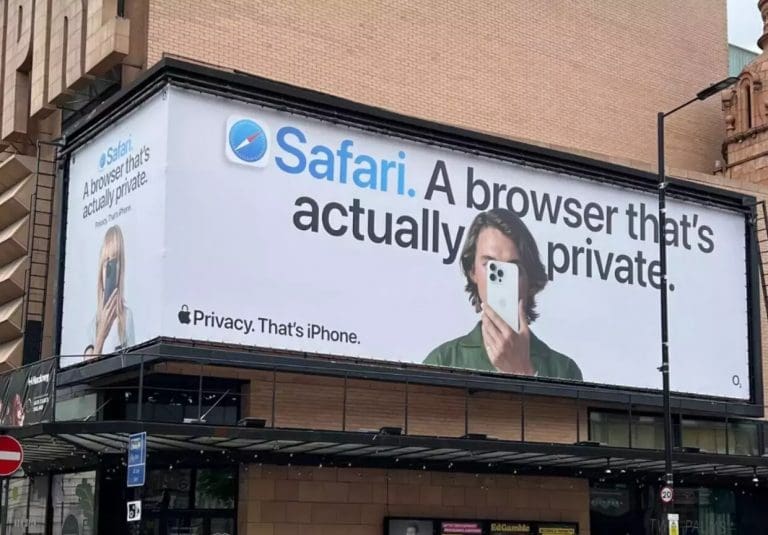Apple has recently sparked considerable attention with a new billboard campaign that many interpret as a direct jab at Google. The billboard, which has appeared in major cities such as San Francisco, London, and Paris, promotes Apple’s Safari browser with the tagline “a browser that is actually private,” followed by “Privacy. That’s iPhone.” This advertisement implies that Safari offers superior privacy compared to competitors, especially Google Chrome, known for its data collection practices.
The campaign comes after Google admitted to collecting user data even when browsing in Incognito Mode. This revelation has caused concern among users, leading to lawsuits and settlements. For instance, Google settled a class-action lawsuit earlier this year by agreeing to delete billions of records showing users’ private browsing activities.

Apple’s marketing strategy capitalizes on these privacy concerns, positioning Safari as the go-to browser for privacy-conscious users. The message is clear: in an era where data privacy is paramount, Apple wants to assure its users that Safari and the iPhone prioritize their privacy.
Jake Moore, a global security advisor for cybersecurity firm ESET, commented on the situation, emphasizing the value of personal data to companies and the importance of users understanding privacy terms. In response, a Google spokesperson asserted that Chrome includes user-friendly privacy and security settings, aiming to give users control over their data.
This marketing move by Apple highlights the ongoing competition between tech giants over user privacy. With growing awareness and concern over data security, companies like Apple and Google are under pressure to prove their commitment to protecting user information.




